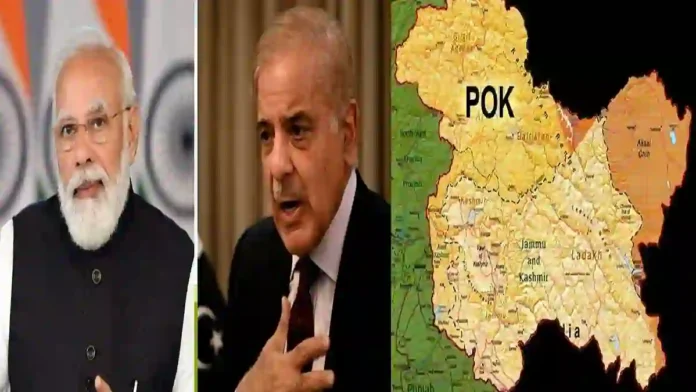Pakistan’s Foreign Minister and Deputy Prime Minister Ishaq Dar has reaffirmed Islamabad’s willingness to engage in comprehensive dialogue with India encompassing Kashmir and all other outstanding bilateral issues, marking a significant diplomatic overture in the aftermath of the intense May 2025 military confrontation between the two nuclear-armed neighbours.
Pakistan’s Diplomatic Position And Comprehensive Dialogue Framework
Speaking to journalists outside Pakistan’s Parliament in Islamabad, Dar emphasized that Pakistan’s approach to future negotiations would not be constrained by any single-point agenda. “Talks, whenever held, will be not just Kashmir but on all issues,” Dar stated, reiterating Pakistan’s preference for what officials term a “composite dialogue” framework. This comprehensive approach would encompass discussions on Kashmir, cross-border terrorism, trade relations, water-sharing agreements including the suspended Indus Waters Treaty, and broader people-to-people exchanges.
Read- India Expands Fighter Fleet With TEJAS MK-1A And Rafale Acquisitions
The composite dialogue mechanism, originally introduced in 2003 during General Pervez Musharraf’s tenure, previously served as a structured framework covering key bilateral topics including Kashmir, terrorism, trade, and cultural exchanges. Dar’s July 2025 statement to the Atlantic Council think tank had similarly emphasized Pakistan’s readiness to “work and cooperate with India on all fronts—from trade to counter-terrorism,” indicating sustained diplomatic commitment despite the intervening military crisis.
The May 2025 Military Crisis And US Mediation
The diplomatic overtures come three months after a four-day military confrontation that brought the nuclear-armed neighbours to the brink of broader conflict. The crisis began with the devastating Pahalgam terrorist attack on April 22, 2025, which killed 26 civilians, predominantly Hindu tourists who were systematically targeted based on their religion. The attack, initially claimed by The Resistance Front (TRF), a proxy organization for the Pakistan-based Lashkar-e-Taiba, prompted India’s swift military response.
India launched Operation Sindoor on May 7, 2025, conducting precision missile strikes on nine terrorist training camps and infrastructure facilities across Pakistan and Pakistan-administered Kashmir.
The operation, lasting 22 minutes and targeting locations from Muridke to Bahawalpur, marked India’s most extensive cross-border military action since the 1971 war. Pakistan retaliated with Operation Bunyan-un-Marsoos (meaning “solid wall of lead” in Arabic), targeting Indian military installations including airbases with drones and ballistic missiles.
Read- Moscow Eyes Role in Sudarshan Chakra Project
The escalating conflict was ultimately contained through intensive US diplomatic intervention. Vice President JD Vance personally contacted Indian Prime Minister Narendra Modi on May 10, warning of catastrophic escalation risks and encouraging direct communication with Pakistan.
Secretary of State Marco Rubio coordinated parallel diplomatic efforts, maintaining contact with officials from both countries throughout the crisis. The ceasefire agreement, announced by President Donald Trump, took effect from 5 PM on May 10, 2025, ending four days of intense cross-border hostilities.
US Role And Pakistan’s Position On Mediation
Dar’s latest statements notably clarified Pakistan’s position regarding US mediation during the May crisis. He explicitly stated that Pakistan had “not requested any mediation but was offered a meeting at a neutral venue”. More significantly, Dar revealed that he “received a call from the US for a ceasefire” and “had made it clear that Pakistan did not want a war”. This contradicts earlier perceptions and places the initiative for US involvement with India rather than Pakistan, according to Pakistani officials who maintain that “India had approached the United States to broker a ceasefire”.
The ceasefire arrangement restored DGMO-level communications between the military leadership of both countries, with regular scheduled conversations aimed at maintaining peace and preventing tactical escalations. Pakistani officials emphasize that the ceasefire agreement remains intact, with Dar stating that “the ceasefire agreement with India is holding”.
India’s Firm Counter-Position
India has maintained an uncompromising stance regarding dialogue parameters with Pakistan. Defence Minister Rajnath Singh articulated India’s position in Parliament, stating that India “will not hold talks with countries that support terrorism” and emphasizing that “dialogue is possible only with democratic and civilised nations, not those driven by hatred and religious extremism”. India’s diplomatic framework restricts potential discussions to two specific areas: the return of Pakistan-occupied Kashmir and addressing cross-border terrorism.
External Affairs Minister S Jaishankar reinforced this position, maintaining that “terror and talks cannot go together” and emphasizing that Pakistan must “shut down terrorist infrastructure” before meaningful dialogue can commence. Prime Minister Narendra Modi’s post-ceasefire statements warned Pakistan of continued military responses to future terrorist attacks, declaring that India would “precisely and decisively target the terrorist hideouts operating under the guise of nuclear intimidation”.
Read- Evolution of India’s Formidable Autonomous Combat Stealth Drone: Ghatak
Current Status And Future Prospects
Despite Pakistan’s diplomatic overtures, significant obstacles remain for substantive dialogue resumption. India’s insistence on terrorism-focused discussions conflicts with Pakistan’s preference for comprehensive engagement across multiple issue areas. The composite dialogue framework that Pakistan advocates would require India to soften its current position significantly, which appears unlikely given the domestic political climate and the recent military confrontation.
Pakistani officials continue to express optimism about potential engagement, with Foreign Office spokesperson Shafqat Ali Khan reiterating that “Pakistan is ready for composite dialogue with India on all matters, not just the issue of terrorism”. However, no concrete progress toward actual negotiations has emerged since the ceasefire, and Dar confirmed that “there is no contact on the political side” despite maintained military-to-military communications.
The diplomatic stalemate persists as both nations maintain fundamentally incompatible positions on dialogue parameters, with Pakistan seeking comprehensive engagement while India demands terrorism-focused discussions as a precondition for broader talks. The absence of scheduled visits by senior US officials, including Secretary of State Marco Rubio, further suggests limited immediate prospects for renewed mediation efforts.
Based On PTI Report
Agencies




